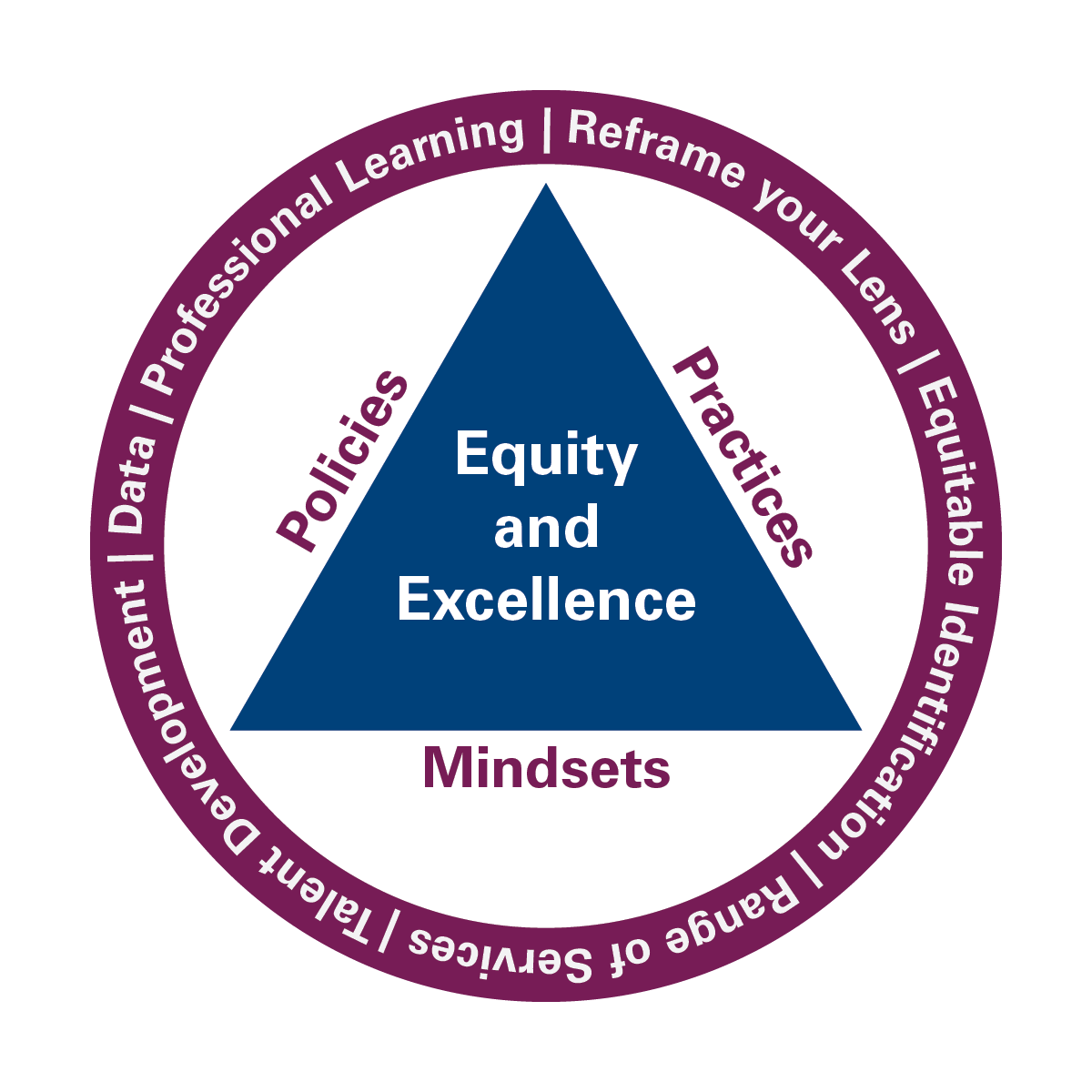NAGC works to support those who enhance the growth and development of gifted and talented children through education, advocacy, community building, and research
 Matthew C. Makel, Ph.D.
Matthew C. Makel, Ph.D.
Sneha Shah-Coltrane
In North Carolina and elsewhere, educators seek to meet the advanced learning needs of students all day, every day. However, inequities rooted in larger society plague education, often leading to inequitable representation in gifted programs.
To combat these problems, in the fall of 2019, in North Carolina we issued a Call to Action. This Call includes what we believe to be six critical actions to realizing equity and excellence in gifted education. These actions include reframing your lens; using equitable identification practices; providing a range of services; fostering talent development; collecting and using meaningful data; and providing focused professional learning opportunities.
Now, in early 2021, we are building on this Call to Action by launching an expanded Guidebook to showcase promising practices schools have begun using to better achieve equity and excellence in their communities and to provide an annotated bibliography of the research and scholarship serving as the foundation for these actions. We hope this guidebook highlights positive actions that are being taken across North Carolina and that it can serve to help other communities take action too.
Like many states, North Carolina has a state mandate to identify and serve gifted students, but each district determines how to identify and serve its gifted population following state programming standards. This flexibility allows districts to take advantage of local strengths and align with community goals. But unique action can also lead to unique consequences, each of which needs to be grounded in a clear framework for improvement. Our intention for the new guidebook is to provide direction that helps each community with its equity and excellence goals.
Although schools cannot fix larger societal inequities on their own, they can ensure that their actions do not compound these inequities while striving to reduce them. Our responsibility as educators must be to promote both equity and excellence. We must take actions to increase access and opportunity, which increases achievement and growth for all. We must assure that student racial, ethnic, economic, or other demographic factors do not reduce their likelihood of access to and successful participation in advanced programming. By realizing equity and excellence in gifted education, schools will help all students reach their full potential.
Both the Call to Action and the Guidebook build on the decades of efforts both in North Carolina and also across our country. This strategic initiative is informed by the work of those who came before us and fueled by the passion of many in our community. That’s why this work began by reaching out to our community so that our efforts would meet their needs. We began with our AIG community in North Carolina, ranging from the North Carolina Academically Intellectually Gifted Coordinators and teachers to researchers from Duke TIP to the State Board of Education and agency leadership. We needed to start with mindsets and clarifying what we even meant when we said “equity and excellence”. Shared understanding of what “equity and excellence” is and what it is not.
The ideas in the call to action and guidebook are not new. Calls to Action are not new either. Multiple previous calls have been framed as student Bill of Rights. The need is clear. For example, the National Center for Research on Gifted Education has reported that students who are English language learners, students who receive free or reduced lunch, and Latinx and Black students are less likely to be identified as gifted even if they have the same reading and mathematics achievement as students not from these groups. This is inequity. This is not excellence.
We are optimistic that this Call to Action and Guidebook for equity and excellence will join other initiatives to catalyze new movement and much-needed change. We are beginning to see such change in North Carolina as we work toward meeting the advanced learning needs of students all day, every day. Mindsets are changing with the State Board of Education’s resolution on equity and excellence. New policies are being created via advanced course math legislation. Practices are leading to growth in participation in AP courses by Black and Hispanic students that outpaces the nation. With these steps and the Call to Action and Guidebook, we are building a better, more equitable tomorrow, where we maximize learning and growth for all students.
Matthew C. Makel, Ph.D., is an associate research scientist in the School of Education at Johns Hopkins University. His research focuses on academic talent development and research methods.
Sneha Shah-Coltrane serves at the NC Department of Public Instruction as the Director of the Division of Advanced Learning and Gifted Education and the Academics Policy Lead. She has served the state for over 25 years in many roles, from teacher to researcher to professional developer and administrator to policy maker. In her role at NCDPI, she has consolidated all advanced learning programs at the state education agency under one over-arching division and serves on the Superintendent’s Leadership Council. Her passion for equity and excellence continues to lead her work both in the state and nationally, including currently, Past-President of CSDPG. Sneha.shahcoltrane@dpi.nc.gov Twitter: @ShahColtrane
The opinions expressed here are not necessarily those of NAGC